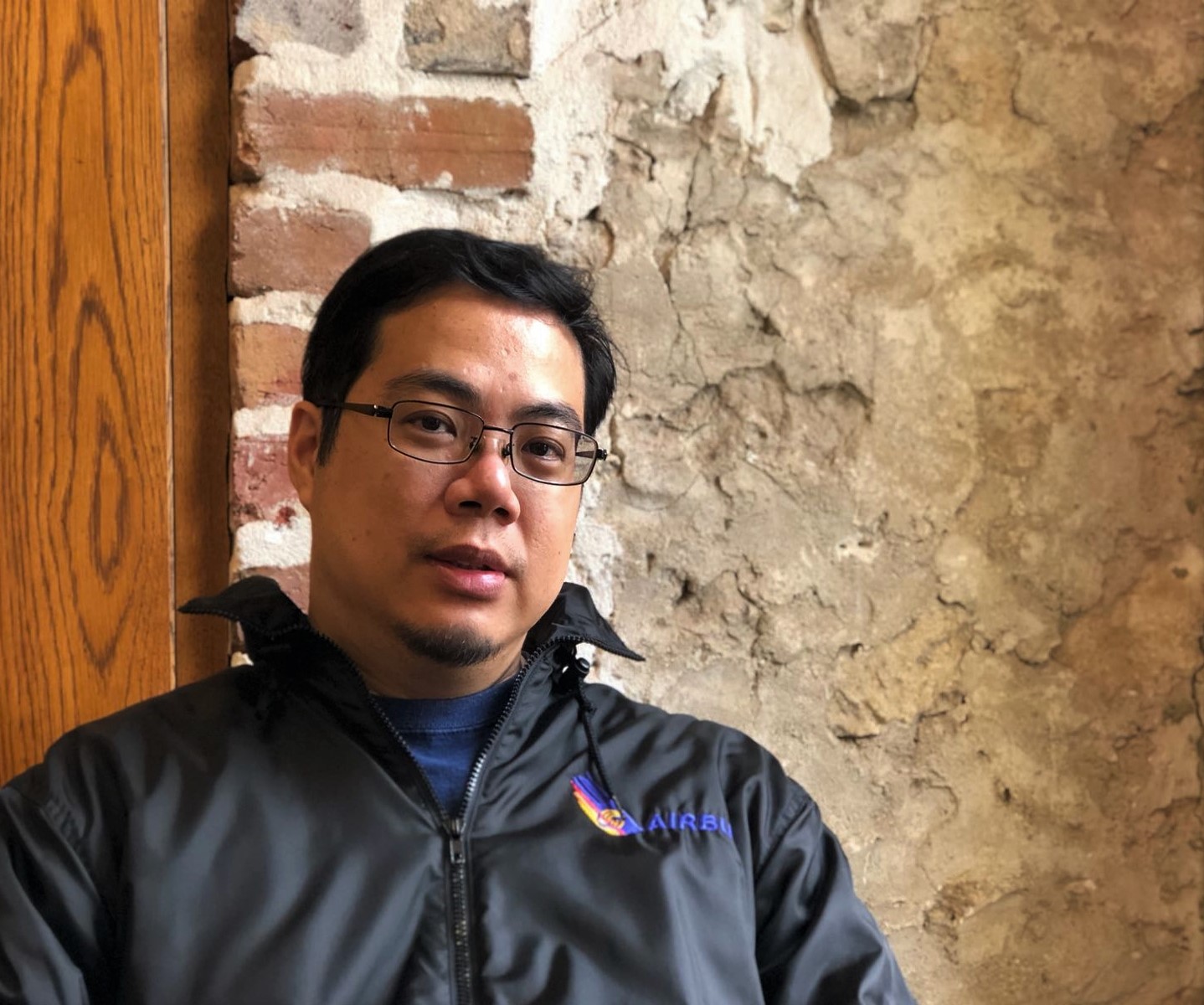“Should we, just because we can?”: When technology makes possible what was impossible
Salt&Light // October 9, 2019, 2:07 pm

As Christians, we need to think through whether new technologies and their uses align with biblical principles, says Aaron Lee, an ethics and regulatory lawyer. Photo by Andy Kelly on Unsplash.
Stewarding technology well has been an issue the world has had to grapple with as the creation of new ideas and products outpaces our critical analysis of them.
Among Christians, there is another level of scrutiny needed, as we think through whether new technologies and how we use them line up with biblical principles.
ChristianX 2019: The Church in a Digital World aims to jumpstart the conversation on this subject. Jointly organised by the Biblical Graduate School of Theology, Bethesda (Katong) Church, the CODEC Research Centre for Digital Theology at Durham University UK, and Indigitous, the two-day conference will explore a range of topics relating to technological innovations globally and in Singapore, and the challenges and opportunities they present for Christians and the church.
One of the event’s organisers is Aaron Lee, an ethics and regulatory lawyer in a Singapore fintech company. He is also a poet-writer as well as an elder and missions director at Yio Chu Kang Chapel. He believes that the Church needs to seriously consider the current developments in digital technology and the new paradigms of church growth, discipleship and mission they offer.
Q: Why ChristianX and why now?
Lee: Philosopher Jacques Ellul Modern said: “Technology has become a total phenomenon for civilisation, the defining force of a new social order.”
Today we are all users (and consumers) of technology in different forms, yet it is now so embedded in daily life that we seldom bring Christian thought into the subject.
Over the past decades technology has become a disruptive force in learning, parenting, entertainment, work and even our values and sense of identity as human beings.
Technology is now so embedded in daily life that we seldom bring Christian thought into it.
Many of us experience and express some sense of disquiet about technology that we see as dehumanising or harmful, but we don’t think that Scripture has anything to say about technology, and we don’t know how to make wise decisions about its development and use.
With the onset of the Fourth Industrial Revolution and emerging and powerful tools like artificial intelligence and blockchain, the time for that reflection and intentional living is now.
I feel that a digital theology conference is timely, and there’s no better place to have this conference than Singapore, with our Smart Nation aspirations.
It’s always important for Christians to ask: “How does God see this area of human endeavour? How does this lead to human flourishing? Does this help us in unfolding God’s purpose for the world?”
The organising committee of ChristianX wants to bring all the different parts of the local church together – parents, marketplace professionals, kingdom leaders, culture stewards and everyone, to explore this huge topic and its implications for life, witness and work.
Q: How can we reflect about digital technology in a specific and practical way?
Lee: Every technology makes possible what was previously impossible, and we should be giving serious consideration to this question: “Should we, just because we can?” This requires us to open our eyes to a world that’s rapidly being changed for better and for worse, because the next generations will be impacted by our decisions.
There are many implications of technology, its use, abuse and governance. For instance, does the realisation that everything we put online never goes away, give us pause? Is there a human right to be forgotten?

“Does the realisation that everything we put online never goes away, give us pause? Is there a human right to be forgotten?” asks Aaron, one of the organisers of ChristianX 2019. Photo courtesy of Aaron Lee.
And then we have issues that have to do with trans-humanism and cybernetics. We may see no issue implanting robots in our bodies for medical reasons, but what about for non-medical reasons? What about social robots to serve us, and how does that affect our human relationships?
How do all these possibilities affect our conception of humans, made by God in His own image? These are practical considerations for daily life, not mere philosophy.
Q: The Fourth Industrial Revolution sounds intimidating and menacing. Is that the Christian attitude towards digital technology?
Lee: I don’t think any of the speakers at ChristianX will advocate to disavow technology completely. There will be speakers sharing how they model and teach young people to use technology and consume media content responsibly.
They will rather encourage parents to keep the screen and social media and algorithms from babysitting their children and forming their worldviews.
Technology can make our mission and gospel witness both better and worse.
Technology often unravels us, body, spirit and soul – we need to guard against those forces and behaviours that erode our well-being. Other speakers will share about the human being being most rested when their identity is founded on being a child of the Creator and Heavenly Father.
As a writer, I’m also personally interested in technology. At last year’s Singapore Writers Festival I gave a lecture about the social impact of blockchain and its underlying philosophy of democratising and socialising value of all kinds.
I gave real-life examples of innovative blockchain projects that try to do good things – giving one billion refugees their own digital identity; freeing money to uplift poor communities; stewarding one’s own carbon footprint and managing one’s reputation via social credit. I also cautioned about this particular technology’s ability to commodify and exploit many aspects of the human being.
Q: Why should the implications of digital technology be of concern to the Church though?
Lee: This is a good question. The simple answer is that technology can make our mission and gospel witness both better and worse.
The Bible talks about culture, how we are in the world but not of the world (John 17:14-15). Our gospel witness is essentially a counter-cultural one, expressed in how we love God, live in holiness and love and lay down our lives for others as Christ did.
Technology often unravels us, body, spirit and soul.
Widespread technology has a tendency to degrade and flatten culture, and if there is no difference between how Christians and every one else lives and thinks, the church’s witness and mission effectiveness is compromised.
Not everything is doom and gloom, of course.
Technology is providing new and more opportunities for the church’s mission. Nearly 400 million people have been born since the time the PC was introduced, and who have spent their entire lives connected with technology. Indigitous and other independent movements are busy connecting and relating to them as fellow digital natives, e-gamers, technopreneurs and problem solvers.
Technology can enable us to fulfil the mandate of bringing Christ to every tribe and tongue.
For example, there is a Christian non-profit called SIL, whose main purpose is to study, develop and document languages, especially those that are lesser-known parts of the world, in order to steward cultures and translate the Word for them.
Today, SIL is doing this with AI and language processing technologies so they can translate scripture faster.
God loves all people (Revelation 7:9) and technology can enable us to fulfil the mandate of bringing Christ to every tribe and tongue (Matthew 28:19).
Another plus is how digital media has made it possible and easy for global communities to form and stay in touch. News and testimonies that encourage and inspire people can be shared in real time around the world. There are prayer and action groups mobilised via apps and on social media platforms. Many are blessed by these.
Q: It sounds like technology is a useful tool for uniting the Church.
Lee: The unity of the body is Christ is valuable for two main reasons – because it presents a winsome witness to the world (John 13:35) and because it enables the final lap of missions to all nations and the “very end of the age” (Matthew 28:18-20).
The Church can speed things up by harnessing technology to create an eco-system, whereby churches and Christians make good use of technology to share their resources.
Q: Can you give an example of how this eco-system might look like?
Lee: One instance we saw this was at the recent Celebration of Hope.
While 125,000 people who turned up at the stadium over three days, 450,000 viewers tuned in to the livestream – there were more ‘attendees’ online. And they wanted someone to process the event with them in real time.
So a team of volunteers was set up to engage them on Facebook. We heard stories of people coming back to the Lord, or they made a decision to follow Jesus, and we got them connected to a local church, whether overseas or here in Singapore. This was something only an inter-church movement could do. We need to realise that people are as real behind the screen as they are right in front of you.
“Could Big Data be something evangelical?” challenge visionaries Jeff Cheong and Dr Freddy Boey
We are an independent, non-profit organisation that relies on the generosity of our readers, such as yourself, to continue serving the kingdom. Every dollar donated goes directly back into our editorial coverage.
Would you consider partnering with us in our kingdom work by supporting us financially, either as a one-off donation, or a recurring pledge?
Support Salt&Light


